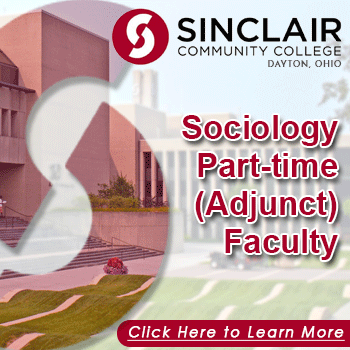This job has Expired
Assistant Professor- Plant Tissue Culture & Transformation (Tree and Ecosystem Restoration Cluster)
Job Description
Details
Posted: 10-Sep-23
Location: Syracuse, New York
Type: Tenure-track
Salary: $75,000+
Categories:
Academic/Faculty
Employment Type:
Tenure-track
Organization Type:
Higher Education Institution
Preferred Education:
Doctorate/Professional
About College of Environmental Science and Forestry:
Founded in 1911, the State University of New York College of Environmental Science and Forestry (ESF) is the nation's oldest and most respected school dedicated to the study of the environment, developing renewable technologies and building a sustainable future. The Department of Sustainable Resources Management offers five majors, including Forest Resources Management and Forest Ecosystem Science. In 2021, the forestry majors were rated as #1 in the country by Study.com. The ESF main campus is in Syracuse, NY and has regional campuses throughout Central New York and the Adirondack Park. ESF consistently earns high rankings in US News and World Report, Forbes, Peterson's Guide, The Washington Monthly, Princeton Review and other national college guidebooks.
Job Description:
ASSISTANT PROFESSOR OF PLANT TISSUE CULTURE AND TRANSFORMATION
AS PART OF TREE and ECOSYSTEM RESTORATION PROGRAM CLUSTER
The State University of New York College of Environmental Science and Forestry (SUNY ESF) in Syracuse, NY is building a faculty cluster in the Tree and Ecosystem Restoration Program (TERP). This cluster will enhance SUNY ESF's leadership role in addressing tree and ecosystem restoration at state, national and international levels. We are hiring five tenure-track positions in three departments: Forest Biotechnologist & Director of TERP, Plant Tissue Culture and Transformation Biologist, and Restoration Ecologist in the Department of Environmental Biology; Plant Biochemist in the Department of Chemistry; and Arboriculturist/Urban Forester in the Department of Sustainable Resource Management. Successful candidates are expected to participate actively in this interdisciplinary cluster initiative. Full details on this cluster hire are available at www.esf.edu/HR/clusterhire .
We invite applications for an academic-year (10-mo) tenure-track position as Assistant Professor of Plant Tissue Culture and Transformation. This position will contribute to supporting Forest Health in the northeastern United States and beyond through substantial participation in the TERP cluster, an expansion of the American Chestnut Research and Restoration Project (https://www.esf.edu/chestnut/about.asp ). We seek a teacher-scholar with a strong commitment to both scholarship and engaging students in the classroom and through research mentorship at the undergraduate, MS, and PhD levels. The successful candidate will be expected to build an internationally recognized extramurally funded research program in tissue culture and transformation of keystone tree species threatened by pests, pathogens, and climate change. Current focal species include the American chestnut, American elm, and the Ozark chinquapin. Future interests include sugar maple, American beech, ash, and others.
Responsibilities: The workload for this position is 45% teaching, 45% research, and 10% service. Specific teaching responsibilities include: 1) two 3-credit undergraduate courses: Plant Tissue Culture and Plant Biotechnology, 2) a one-credit graduate-level seminar in the candidate's area of expertise, and 3) a one-credit undergraduate level course in Research Design and Professional Development. Service responsibilities include advising undergraduate students, mentoring graduate students at the Master and Doctoral levels, and participating in department, college, and community service.
Starting Salary: $75,000
Requirements:
Required Qualifications:
- PhD in plant biotechnology or related area of biology, with experience using plant tissue culture and transformation techniques.
- Strong record of publication of plant biotechnology-related research.
- Strong evidence of potential to secure external funding to support research.
- Evidence of effective teaching and mentoring.
- Demonstrated interest in research integrating molecular and/or physiological processes to organismal and ecological levels.
Preferred Qualifications:
- At least one year of postdoctoral or professional research experience with proven track record in plant tissue culture and transformation research.
- Research experience and publications focused on temperate forest tree species.
- Demonstrated ability to communicate science effectively to multiple constituencies.
- Evidence of collegiality and dedication to professional service.
- Demonstrated experience fostering an inclusive environment, working with people from diverse backgrounds, and incorporating diverse perspectives in research.
- Familiarity with U.S. federal regulatory policy for genetically engineered plants
Additional Information:
The Department, College, and broader Community: The successful candidate will join the faculty of the Department of Environmental Biology (www.esf.edu/efb/ ). The Department has over 30 faculty, 110 graduate students, and 510 undergraduates. EB undergraduate majors include Aquatic and Fisheries Science, Biotechnology, Conservation Biology, Environmental Biology, Forest Health and Wildlife Science. ESF's more than 25,000 acres of forest properties include the Adirondack Ecological Center (https://www.esf.edu/aec/ ) which serves as a basecamp for teaching and research in a near-pristine 15,000 acre portion of the Adirondacks. Our department is home to the American Chestnut Research and Restoration Center (https://www.esf.edu/chestnut/), Center for Applied Microbiology (https://www.esf.edu/appmicro/index.php ), Center for Integrated Teaching and Research (CIRTAS), Center for Native Peoples and the Environment (www.esf.edu/nativepeoples/ ) and Restoration Science Center (https://www.esf.edu/research/restorationscience/ ). It is also home to the Thousand Islands Biological Station (https://www.esf.edu/tibs/ ) on the Great Lakes and St. Lawrence River, and Cranberry Lake Biological Station located in the Adirondacks and surrounded by wild forest and wilderness lands. We seek to recruit and retain a diverse workforce to sustain program excellence and offer varied disciplines, perspectives, and ways of knowing. The Department hosts the oldest, and today one of the largest, combined programs in Fisheries, Wildlife Science, and Conservation Biology in the nation.
ESF is a specialized PhD-granting college within the 64-campus SUNY system, and is a Carnegie R2 "High Research Activity" Institution that consistently earns high rankings in US News and World Report, Forbes, Princeton Review, and other national college guidebooks. With a total enrollment of about 2,200 undergraduates and 400 graduate students, ESF provides an intimate small-college atmosphere while its immediate proximity to Syracuse University and Upstate Medical University fosters a vibrant, diverse, large-university setting. ESF's more than 25,000 acres of forest properties, both close to Syracuse and across the Adirondack Park, provide numerous opportunities for experiential coursework and research.
The college is located in Syracuse, New York, a dynamic and diverse community with plentiful natural, cultural, and civic opportunities. "The Places Rated Almanac" ranks Syracuse among the top 10 percent of "Best Places to Live." Located on the eastern edge of the Finger Lakes, Syracuse is within a five-hour drive of New York City, Toronto, and the High Peaks Region of the Adirondack Mountains. SUNY-ESF is one of eight colleges and universities located in Onondaga County. The Syracuse University campus is immediately adjacent to SUNY-ESF, and SUNY Upstate Medical University is located within easy walking distance.
The SUNY-ESF campus provides a rich array of curricular and co-curricular experiences with our main Syracuse campus just southeast of downtown Syracuse and our regional campuses stretching from southern Onondaga County to the Adirondacks. The Syracuse area, home to our main campus, is home to many cultural events, museums, state and local parks and numerous festivals throughout the year along with a growing downtown in the city of Syracuse. Onondaga County provides a variety of neighborhoods that include urban, rural and suburban with strong schools, affordable housing and supportive communities.
In accordance with the "Jeanne Clery Disclosure of Campus Security Policy and Campus Crime Statistics Act" institutions of higher education are required to prepare an annual report containing information on campus security policies and campus statistics. This report includes statistics for the previous three years concerning reported crimes that occurred on-campus; in certain off-campus buildings or property owned or controlled by SUNY-ESF; and on property within, or immediately adjacent to and accessible from the campus. The report also includes institutional policies concerning campus security, such as policies concerning sexual assault, and other matters. You can obtain a printed copy of this report by contacting SUNY-ESF University Police at 315-470-6667 or by accessing the following web site: http://www.esf.edu/univpolice/crimereports/2015CampusSecurityFireReport(MainCampus).pdf .
Pursuant to Executive Order 161, no State entity, as defined by the Executive Order, is permitted to ask, or mandate, in any form, that an applicant for employment provide his or her current compensation, or any prior compensation history, until such time as the applicant is extended a conditional offer of employment with compensation. If such information has been requested from you before such time, please contact the Governor's Office of Employee Relations at (518) 474-6988 or via email at info@goer.ny.gov .
The SUNY College of Environmental Science and Forestry is committed to creating and sustaining a diverse community that promotes equity and inclusion for all its members. Diversity that arises from differences such as, but not limited to, gender, race, ethnicity, ability, sexual orientation, socioeconomic status, national origin, or religious traditions is central and indispensable to the institutional excellence and mission of the College.
ESF is actively recruiting diverse faculty of all backgrounds. In efforts and our commitment to the goal of building a diverse workforce we are participating in PRODiG. PRODiG ("Promoting Recruitment, Opportunity, Diversity, Inclusion and Growth") aims to increase the representation of historically underrepresented faculty at SUNY including underrepresented minority ("URM") faculty in general and women faculty of all races in STEM fields ("WSTEM"). https://www.suny.edu/prodig/
SUNY ESF is a Smoke and Tobacco Free campus and is dedicated to providing a healthy and safe environment for the entire campus. For more information you can visit our Tobacco and Smoke Free Policy at https://www.esf.edu/au/documents/ESF Tobacco Free.pdf
SUNY-ESF is an equal opportunity/affirmative action employer. All qualified applicants will receive consideration for employment without regard to sex, gender identity, sexual orientation, race, color, religion, national origin, disability, protected veteran status, age, or any other characteristic protected by law.
Application Instructions:
Application Procedure: Applications should include: 1) cover letter summarizing interests and qualifications, 2) curriculum vitae with contact information (name, institution, email, phone, and address) for a minimum of three references who have agreed to send letters of recommendation when needed, 3) statement of plans to foster diversity and inclusion through teaching, research, and service, 4) statement of research interests and vision, and 5) statement of teaching philosophy and vision. The diversity, teaching, and research statements should not exceed 2 pages each, and we welcome statements demonstrating integrative and collaborative approaches that complement departmental strengths. The entire application should be compiled as a single pdf document (not exceeding 10 MB) Questions about the application process and document submission should be directed to humanresources@esf.edu. Questions about the position and the Department of Environmental Biology should be directed to Dr. Danilo D. Fernando, Search Committee Chair, at dfernando@esf.edu.
Application Deadline: To ensure optimal consideration, all application materials must be received by October 1, 2023 although this position will remain open until filled.
Create a Job Alert for Similar Jobs
About SUNY ESF
Founded in 1911, the State University of New York College of Environmental Science and Forestry (ESF) is the nation's oldest and most respected school dedicated to the study of the environment, developing renewable technologies and building a sustainable future. The ESF main campus is in Syracuse, NY and has regional campuses throughout Central New York and the Adirondack Park.
Connections working at SUNY ESF
More Jobs from This Employer
https://main.hercjobs.org/jobs/19125058/assistant-professor-plant-tissue-culture-transformation-tree-and-ecosystem-restoration-cluster
Return to Search Results
*Please mention you saw this ad on AcademicJobs.*




